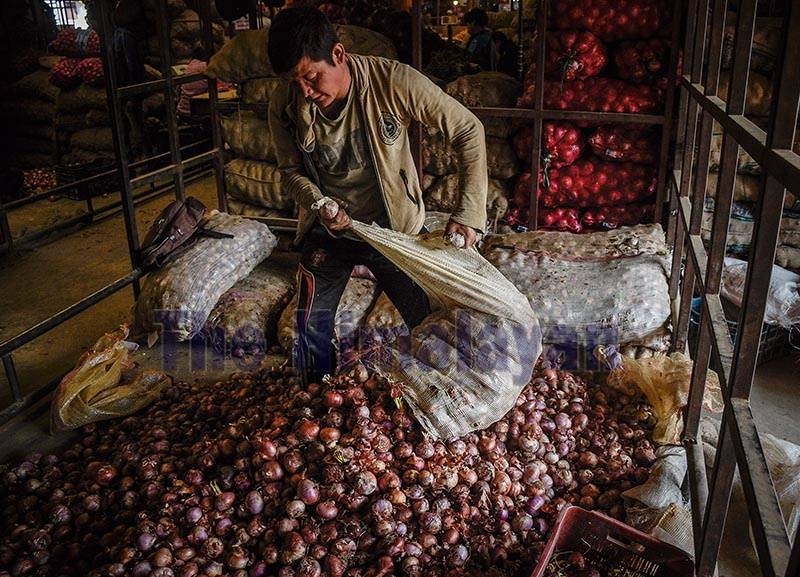Onion Price Soars in Kathmandu Domestic Market After Traders Stop Imports
Key Highlights :

The price of onion has skyrocketed in the domestic market of Kathmandu, Nepal over the past week after traders stopped imports in protest against the government's decision to impose a 13 percent value added tax (VAT) on certain types of imported fruits and vegetables. According to Kalimati Fruits and Vegetables Market Development Board, the price of onion which stood at around Rs 35 per kg at wholesale price in the domestic market before the budget announcement is currently being traded in between Rs 80 and Rs 100 a kg.
The Nepal Agricultural Produce Potato, Onion Import Export and Wholesalers Association held a press conference on Monday and demanded the government not to impose 13 percent VAT on the import of certain vegetables and fruits, specifically potatoes and onions, stating that the decision will lead to a hike in their market prices and ultimately affect consumers as the country's domestic production is insufficient to meet the local demand.
Onion is cultivated on over 20,252 hectares of land in Nepal, with a production capacity of 289,055 metric tonnes, as per the statistical information on Nepali agriculture 2020-21 published by the Ministry of Agriculture and Livestock Development. According to Kalimati Fruits and Vegetables Market Development Board, the country is almost entirely dependent on imports from India for onions.
Prem Lam Maharjan, president of the National Consumers Forum, blamed the government's decision to impose VAT on imported vegetables like potatoes and onions for the shortage and eye-watering price hike. He complained that while the government is focused on increasing revenue collection and traders looking to maintain their profit margins, it is the consumers who have been left teary-eyed.
Homnath Bhattarai, director at the Department of Commerce, Supplies and Consumer Protection, said that the government is aware of the supply disruption and has intensified inspections in market areas for onions being traded without a bill. He said that the department is determined to stop and take action against any kinds of activities related to smuggling and price gouging in the domestic market.
Finance Minister Prakash Sharan Mahat, while answering questions raised by lawmakers over the government's decision to impose a tax on imported consumer goods, had insisted that the imposed VAT will safeguard and promote domestic production and demotivate imports while also narrow down the trade deficit.
The sudden increase in onion prices in a span of two weeks has caused a lot of distress to the consumers and the government must take immediate steps to address the issue. The government should take into consideration the demands of the traders and consumers and take necessary steps to ensure the availability of onions in the domestic market at reasonable prices.
